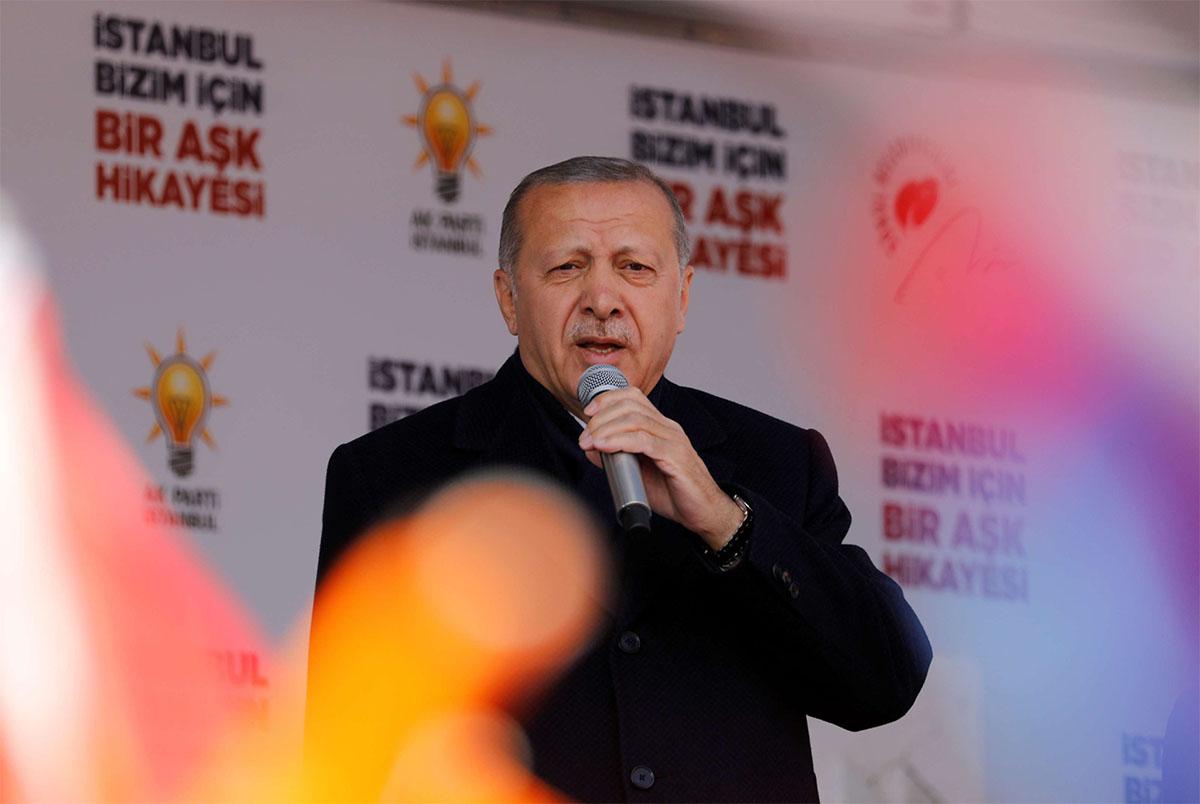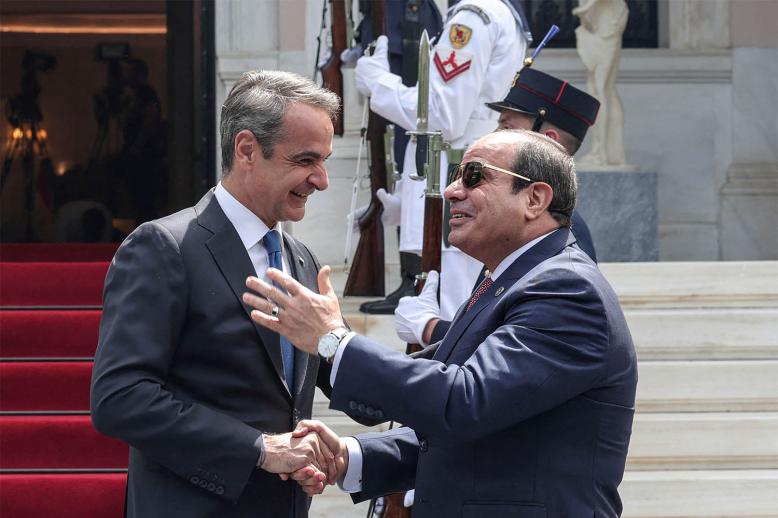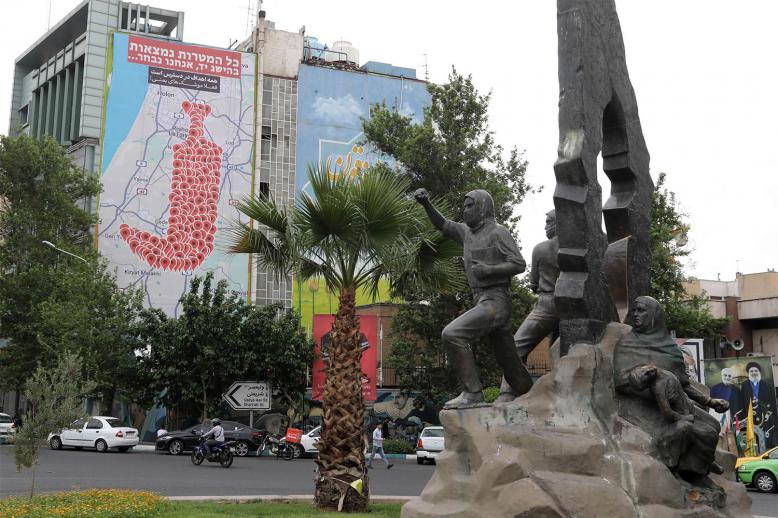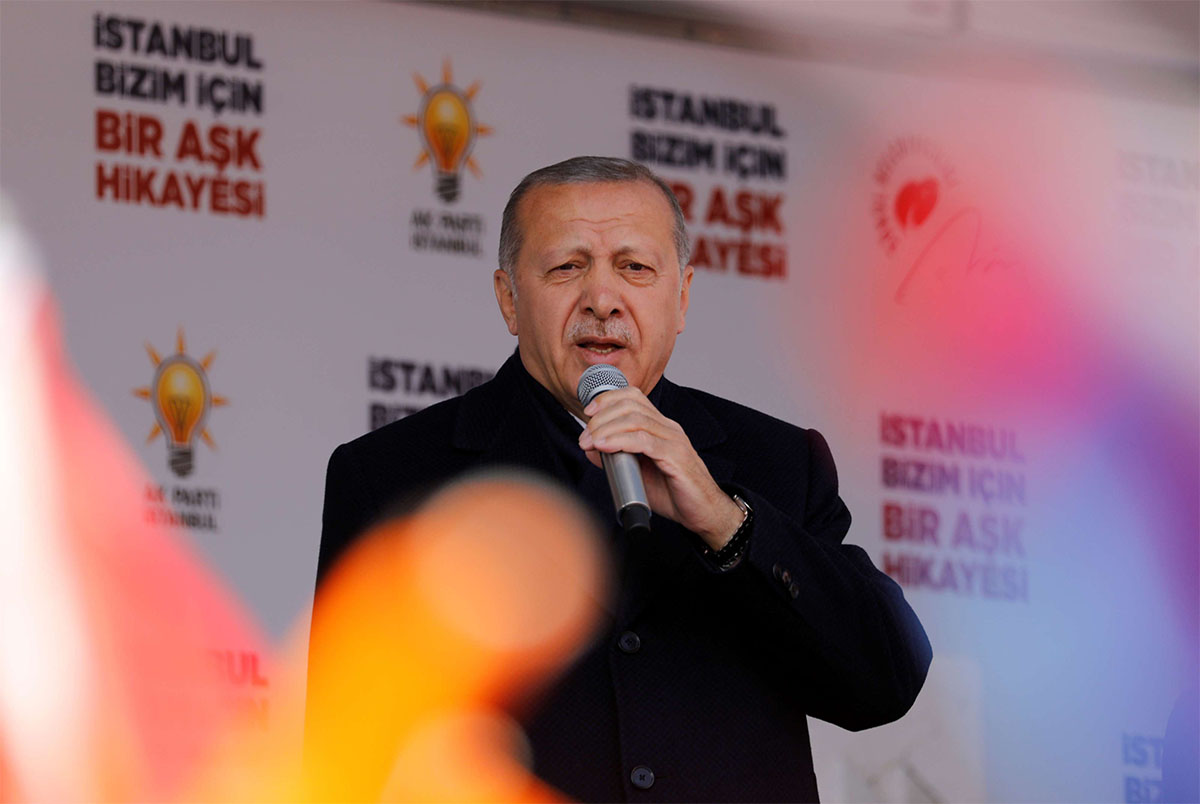Erdogan shows signs of 'panic' before local elections
BERLIN — Less than a year after Turkish leader Recep Tayyip Erdogan won sweeping powers in presidential and parliamentary elections, he is facing a new electoral test and some observers say his government is showing signs of “panic” amid predictions of major losses.
Polls indicate that Erdogan’s ruling Justice and Development Party (AKP) may experience a setback in local elections after winning 53 out of 81 provincial capitals in 2014. The AKP has teamed with the right-wing Nationalist Movement Party (MHP) but it is unclear whether the alliance can repeat its result of presidential and parliamentary elections last June when the two parties won a combined 53.7% of the vote.
Even though the current elections determine local parliaments and mayors, Erdogan has turned the vote into a referendum about himself. The AKP has governed Turkey for more than 16 years and has defeated the opposition many times since then as it oversaw an economic boom that created a new middle class.
Erdogan, who has enjoyed wide-ranging executive powers since the election last year but who has been criticised at home and abroad for growing autocratic tendencies, has been using the state apparatus and a heavy media presence to attract voters.
But the March 31 elections could bring unwelcome surprises for Erdogan’s party. Some surveys suggest the AKP may lose control over Ankara and other cities. Days before the vote, the ruling party could not be sure of victory in Erdogan’s home town, Istanbul, either.
The prospect of significant losses, amid a downturn in the economy, a sharp drop in the value of the national currency and a rise in unemployment, created concern in government circles, said Aydin Engin, a columnist at T24, an independent news portal.
“There is a panic-like situation” on the government side, Engin said. He pointed out that pressure by the government had led to unprecedented opposition unity. In some regions of Turkey, the pro-Kurdish Peoples’ Democratic Party (HDP) is supporting centre-right and centre-left parties, its traditional rivals, without fielding its own candidates, to inflict maximum damage on the AKP.
“The fact that the opposition has formed a united bloc has upended traditional voting calculations,” Engin said. “AKP candidates, especially in Ankara, Istanbul, Bursa and Izmir are behind or the race is on knife’s edge.”
The government’s response has been to increase pressure on the opposition.
Erdogan threatened to go after opposition candidates after Election Day for what he says are connections to radical groups, even though the candidates have been cleared to run by Turkey’s election board. Speaking in a television interview on March 24, Erdogan said the AKP would move to strip around 340 opposition members of any post they might win in the election. “We will block them,” Erdogan said.
Turkish Interior Minister Suleyman Soylu said the government had information that some candidates had ties to the Kurdistan Workers’ Party, considered a terrorist group by Ankara, and would be “suspended” if elected. Kemal Kilicdaroglu, leader of Turkey’s biggest opposition group, the Republican People’s Party, commented that candidates the government didn’t like were “free to enter the election but banned from winning.”
Erdogan also indicated there could be judicial investigations against Kilicdaroglu and Meral Aksener, leader of the Iyi Parti (Good Party), a conservative opposition group. Former HDP leader Selahattin Demirtas has been in jail for more than two years.
Statements by Erdogan and other AKP officials gave the impression of a desperate governing party throwing the kitchen sink at a reluctant electorate. Erdogan showed parts of the video of the massacre at mosques in New Zealand during campaign events to whip up support. In what appeared to be another attempt to attract Muslim conservative voters, he suggested that Istanbul’s Hagia Sophia could be turned into a mosque.
Built nearly 1,500 years ago, the Hagia Sophia served as the most important church of the Byzantine Empire before turned into a mosque after the Ottoman conquest in 1453. Modern Turkey’s founder Mustafa Kemal Ataturk declared the building a museum in the 1930s but Turkish Islamists have been campaigning for years to reconvert the building into a Muslim house of prayer. Erdogan said March 24 that the Hagia Sophia could be “taken out of the museum status."
The AKP has also been trying to address growing unease among Turks about the presence of 3.6 million Syrian refugees in the country. Binali Yildirim, the AKP mayoral candidate in Istanbul, said Syrians would be deported if they disturbed the peace in the city.
Major losses for the AKP in Istanbul or other major cities could shatter Erdogan’s reputation of invincibility. There has been media speculation that a drop of the AKP/MHP alliance to less than 50% could trigger calls for early parliamentary elections.
Some observers, however, warn against counting out the president.
“Erdogan certainly seems weaker than at any other time in the last almost 17 years but that does not mean he is at risk,” Steven Cook, a Middle East expert at the Council on Foreign Relations in Washington, wrote in the Foreign Policy magazine. “He and the AKP have controlled Turkey for almost two decades and, as a consequence, they control the press, control state resources and control the political process at every level.”
Thomas Seibert is an Arab Weekly contributor in Istanbul.
Copyright ©2019 The Arab Weekly






